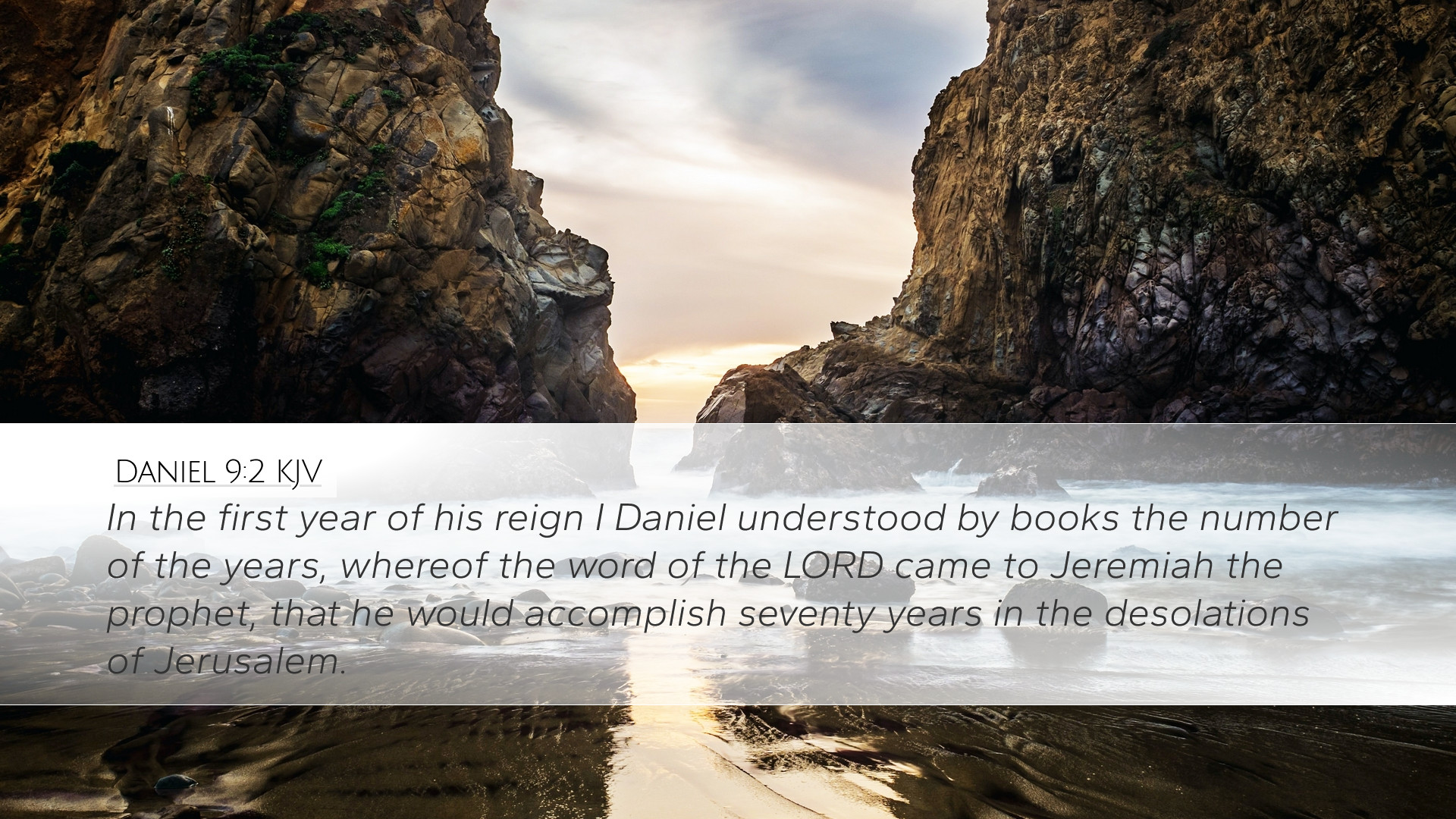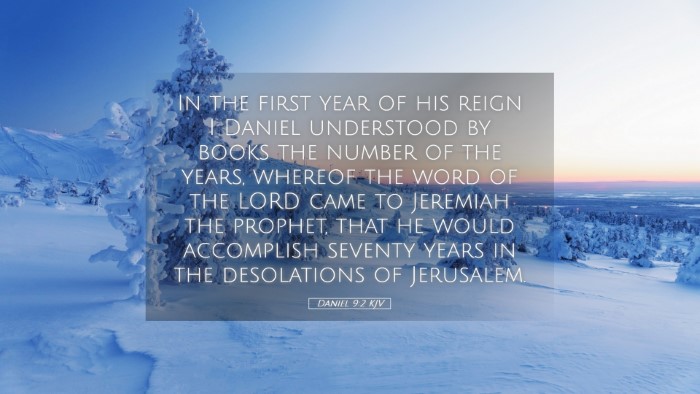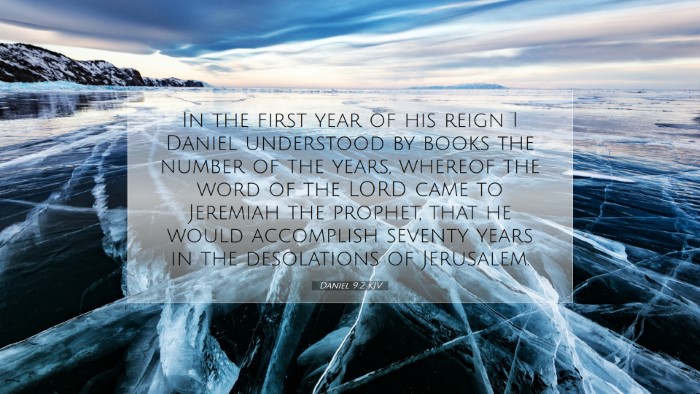Commentary on Daniel 9:2
Verse Text: "In the first year of Darius, the son of Ahasuerus, of the lineage of the Medes, who was made king over the realm of the Chaldeans." (Daniel 9:2, NKJV)
Introduction
This verse serves as a critical context for the prophetic prayer of Daniel. It is situated in the historical backdrop of the Babylonian captivity, elucidating the time when Daniel sought divine revelation regarding the fate of his people. Several renowned commentators dissect this verse, providing insights that are valuable for both scholarly and pastoral reflections.
Historical Context
The mention of "the first year of Darius" marks a significant transition in the history of the Jewish people. Following the fall of Babylon to the Medes and Persians, this period signifies a shift from oppression to the possibility of restoration. Commentators like Matthew Henry emphasize the importance of dates in biblical prophecy; they anchor the text within a timeline that guides understanding of God's sovereignty over nations and their rulers.
Impact of Darius' Rule
Albert Barnes notes that Darius, as a ruler, represents not just a political figure but also a tool in God's providential plan. His ascent to the throne is seen as a fulfillment of the prophecy pertaining to the Babylonian Empire's downfall. This serves to encourage believers in recognizing that earthly powers are ultimately under divine authority.
Spiritual Insights
Daniel's earnest seeking of understanding in this verse resonates deeply with the faithful's journey in petitioning God for insight and clarity. Adam Clarke elaborates on the theme of prayer that arises throughout this chapter, marking it as a model for believers who seek to align their individual experiences with God's greater plan.
The Importance of Seeking God
- Focus on Prayer: Daniel's first action upon understanding the times is to pray fervently, demonstrating the need for urgent communication with God.
- Recognition of Scripture: He refers to the writings of Jeremiah, indicating a deep engagement with the prophetic texts, underscoring the call for believers to immerse themselves in Scripture for guidance.
- Confession and Humility: His approach to confession reveals a heart posture of humility and dependence on God's mercy, an essential attribute for spiritual leaders today.
Interpretative Themes
This verse introduces themes of restoration, prophetic fulfilment, and the covenant faithfulness of God. Matthew Henry reflects on the hope embedded in this verse, noting that the time of captivity is not the end but a precursor to restoration.
God’s Covenant and Promises
The historical references in this verse help to affirm God’s steadfast love and commitment to His people. Daniel realizes the importance of understanding prophetic timelines, echoing a cry for deliverance grounded in the knowledge of God’s promises to Israel.
Pastoral Application
For pastors and teachers, this verse calls for an encouragement to engage congregations in prayer and reliance on God's promises. The historical setting acts as both a reminder of God’s past faithfulness and an assurance of future restoration.
Encouragement to Pray
Leaders can take inspiration from Daniel’s example of devoted prayer amidst hardship. Albert Barnes emphasizes that diligence in prayer not only leads to understanding but also cultivates faith in the promises of God.
Nurturing a Community of Prayer
Pastors are urged to foster a culture of intercession—encouraging congregations to seek God’s face earnestly for guidance and renewal in challenging seasons.
Conclusion
Daniel 9:2 serves as a powerful reminder of the intersection of history, prophecy, and personal devotion. The insights garnered from renowned commentators such as Matthew Henry, Albert Barnes, and Adam Clarke enrich our understanding of prayer as a vital expression of faith in tumultuous times. Within this verse lies an invitation to dive deeper into God’s Word, embrace prayer, and trust in the divine sovereignty that governs both individual lives and broader historical movements.


